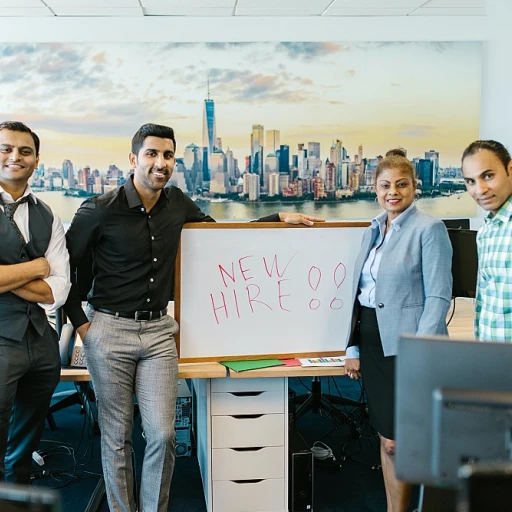
Understanding Employer Rights
The Balance Between Employer Requests and Rights
Employers often find themselves navigating a complex web of employee rights and workplace policies. One question that frequently arises is whether an employer can request a doctor's note for a single day of absence. Understanding the rights and limitations involved is crucial for both parties.
Firstly, employers have the right to manage their workforce's absences to maintain productivity and ensure that health conditions do not interfere with the work environment. In some cases, requesting a doctor's note is permissible, especially if there is a consistent pattern of absenteeism or if the leave is taken under suspicious circumstances.
On the other hand, employees have rights that protect their privacy and prevent unnecessary intrusion into their medical concerns. With laws like the Family and Medical Leave Act (FMLA) and various state laws that govern leave policies, employees are often shielded from excessive demands for medical documentation, especially for short-term absences.
The key to understanding when an employer can request a doctor's note lies in balancing these rights with employment policies. For instance, while a single day of sick leave may not typically require medical certification, employers might have policies in place that allow them to request notes under specific circumstances.
Additionally, cultural considerations and workplace norms can play a role. In environments where trust and transparency are integral to the workplace culture, frequent requests for medical documentation might be perceived as intrusive and counterproductive.
For employers, it's essential to craft policies that accurately reflect both legal obligations and the desire to maintain a healthy work culture. With innovative leave policies such as unlimited paid time off (PTO) becoming more common, the conversation around how and when to request medical documentation is evolving.
Employee Rights and Privacy Concerns
The Complexities of Balancing Employee Privacy and Employer Needs
When employers consider requesting a doctor’s note for a single day of absence, there’s a delicate balance between protecting their operational needs and respecting the privacy of employees. This complexity is compounded by the intersection of employment law and personal health information. Navigating this balance is crucial for sustaining a healthy work environment.
From an employee’s perspective, certain health conditions might require privacy due to the sensitive nature of medical information. The request for a medical certification needs to be handled with care, considering potential implications for an employee's sense of personal invasion or mistrust. Confidentiality is key, and many employees may feel uncomfortable sharing specifics about their health care provider or the details of their health conditions, unless absolutely necessary for their job requirements.
Legislation surrounding this issue, such as the Family and Medical Leave Act (FMLA), often governs over privacy concerns by outlining the circumstances under which a note can be requested. On the other hand, sick leave policies may vary significantly by state law, employer policies, and the precise nature of the absence in question—such as whether it qualifies for FMLA leave or is simply a day of earned sick time. Employers are encouraged to raise awareness about these policies to ensure all parties are well-informed.
It's advisable for employers to implement clear guidelines on when a medical note is required, potentially limiting such requests to instances where the absence spans consecutive days or aligns with other established criteria, such as paid or unpaid sick leave. This helps avoid unnecessary tension or breaches of trust between employees and employers. Moreover, clear communication about these policies can help mitigate misunderstandings and build a collaborative workplace based on mutual respect and understanding.
Impact on Workplace Culture
Fostering a Supportive Work Environment
Ensuring a healthy work environment is crucial for both employers and employees. When employers request a doctor's note for a single day of absence, it's essential to consider the overall impact on the workplace culture. A supportive atmosphere can greatly influence the perception of such requests. One primary concern is the balance between accountability and empathy. If an employee takes a day off due to a health condition, requesting a medical note can be perceived as a lack of trust. Employers must tread carefully to avoid creating an environment where employees feel scrutinized or undervalued. To cultivate a positive culture, it's beneficial for employers to:- Be Transparent: Clearly communicate the company's policies regarding health-related absences and the requirement of medical certifications.
- Promote Open Communication: Encourage employees to discuss any health concerns or requests for sick leave openly, without fear of judgment.
- Offer Flexibility: Provide options for paid sick time or alternative arrangements, such as remote work, whenever possible.
HR Interview Strategies
Strategies for HR Interviews When Discussing Absentee Policies
During HR interviews, evaluating a candidate's understanding of company policies on sick leave and medical absence is crucial. Employers need to ensure that potential hires are aware of the employer's rights to request a doctor's note under certain circumstances, such as multiple consecutive days of absence or specific state law requirements.
Key points to discuss include:
- Clarity on Policy: Candidates should demonstrate an understanding of company policies regarding sick leave. This includes an employee's obligation to provide a medical certification or doctor note when requested, especially for absences covered by FMLA leave or other medical leave policies.
- Understanding of Privacy: It is important to address an employee's right to privacy under employment law. Prospective employees should be aware of how these rights protect them while ensuring they adhere to necessary protocols when a health condition requires them to take sick time.
- Impact on Company Culture: It's beneficial to discuss the broader implications of absentee policies on workplace culture. Sick leave practices can influence the perception of employee rights and the level of trust between employees and employers.
- Examples and Real-World Scenarios: Draw from real-world examples to highlight how different companies navigate requirements like FMLA leave and earned sick leave. This helps in assessing a candidate's ability to apply policies practically.
- State Laws and Best Practices: Encourage candidates to share any knowledge of specific state laws that might impact sick leave policies. Understanding these legal implications demonstrates their comprehensive grasp of employment rights.
By focusing on these strategies, HR professionals can gain insights into how candidates will handle employment law practices relating to health care and absence, ensuring alignment with the organization's values while respecting employee rights.
Legal Implications and Best Practices
Legal Framework and Best Practices
When dealing with the complexities of requesting a doctor's note for a single day of absence, it's essential to consider the legal framework that governs employment practices. Employers must be well-versed with federal laws like the Family and Medical Leave Act (FMLA), which outlines the rights of employees to take unpaid, job-protected leave for specific family and medical reasons. However, FMLA typically covers more extended periods and specific conditions, not a single day of absence. State laws can vary significantly, with some providing more robust protections than federal regulations. Employers need to stay informed on the specific legal requirements within their state, which could mandate or prohibit the requirement of a doctor's note for short-term absences. Consulting with legal experts or HR professionals knowledgeable in state law can prevent potential litigations and misunderstandings. Adopting best practices involves striking a balance between maintaining productivity and acknowledging employee health needs. Encouraging open communication fosters a supportive work environment where employees feel comfortable discussing their health conditions. This approach not only strengthens the employer-employee relationship but also helps prevent potential misuse of sick time. Employers can implement practical solutions like flexible sick leave policies that address the need for a note. These policies might include conditions for when medical certification is necessary, such as consecutive days of absence due to a serious health condition. However, requiring a note for every sick leave may cause resentment among employees, potentially impacting morale and workplace culture. To align with best practices, employers might consider conducting regular training for their HR teams and managers to keep them informed about the current employment law and leave policies. This way, they can ensure consistent application of rules and policies across the board, reducing the risk of discrimination or unfair treatment. In summary, understanding the legal implications of requiring a doctor's note for a single day of leave is crucial. Employers should aim to establish clear, fair, and compliant leave policies to protect their organization while respecting employee rights.Case Studies and Real-World Examples
Real-World Scenarios: Employer Requests for Doctor's Notes
When examining real-world scenarios where employers request a doctor's note for a single day's absence, it becomes clear that the implications can vary greatly depending on the context and the individuals involved. Many companies have policies that outline whether a doctor note is required, often influenced by considerations such as frequency of absences and the nature of the health condition.
For instance, in organizations where there is a high rate of absenteeism, an employer request for a doctor note after a single day of absence might be seen as a strategy to ensure accountability. In contrast, companies that prioritize their employees' well-being over strict attendance policies might choose to trust their employees unless there's a pattern of suspicious absence.
Legal cases in this area also shed light on the fact that the requirement of a medical certification can sometimes lead to disputes, especially when employees feel their rights to privacy are being violated. Certain state laws provide additional protection against unnecessary demands from employers for a doctor's note, particularly in states with more robust employee protection regulations.
Moreover, employees working in roles that do not offer paid sick leave or those managing a serious health issue may face heightened stress when asked to provide a doctor's request, owing to the potential financial burden. Differences in company policies can lead to uneven experiences, influencing how comfortable employees feel utilizing their sick time or leave.
Ultimately, real-world examples highlight the delicate balance between an employer's need to maintain productivity and an employee's right to privacy and respect, emphasizing the importance of clear communication and well-defined policies in the workplace.













